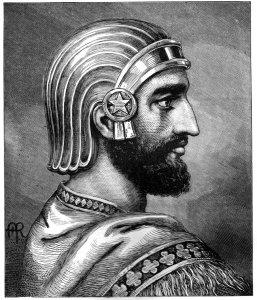A friend recently asked about Isaiah 45.7, “I form the light, and create darkness: I make peace, and create evil: I the Lord do all these things.” I remember as a college student how professors tended to translate the problem away. Perhaps I was too young to understand the truth of the Italian phrase, “Traduttore, tradittore”—if I may betray myself—“translators are traitors.” I eventually did come to learn that those who’d already decided what the Bible meant could translate troublesome passages according to their biases. In this case the connotations aren’t even necessary to raise hackles, for the denotations do so fine just by themselves. Let’s put Isaiah 45 in context first. This remarkable chapter is an oracle from the beginnings of the Persian period that show Yahweh doing things in unexpected ways. It begins by calling Cyrus the Lord’s anointed—yes, that is the Hebrew word for “messiah”—the people of Judah had been in exile a long while and Cyrus, king of Persia, was their deliverer.
Back then, as even today, some would’ve been scandalized at this turn of phrase. The Judahites were beginning to develop the idea that the messiah would be a mystical deliverer, someone who would free them from the sad lot of being deportees. Some thought the messiah might be a divine figure. Here Yahweh is declaring a non-Jew, a foreign king, as a messiah. You can be sure there was some questioning of the prophet’s words. Second Isaiah, however, throws a well-timed curve in verse 7: God can do this because God creates both good and evil. This is a consequence of emerging monotheism. In a polytheistic world, you could have a plethora of deities. Monotheism, however, quickly runs afoul of the question of evil. If there is one god, where does it come from? Deutero-Isaiah shows Yahweh is capable of surprising things. The verse’s plain sense is blatant. Bald. Obvious. Yahweh creates both good and evil. Otherwise monotheism would be making false claims.
In college professors tried to insist that “evil” here wasn’t that really bad kind of evil, but rather something milder—a filtered cigarette rather than a Cuban cigar. They were prevaricating, however, as I learned when I too took up Greek and Hebrew. Evangelicals like to read monotheism into the Bible from the beginning, but the Bible itself fights against them here. Monotheism, like everything else, evolved. By the time Isaiah 45.7 was being penned, it was necessary to show that Marduk, and Enlil, and Ishtar had nothing to do with Jerusalem’s destruction and the fate of the deportees. No, this was Yahweh’s doing. And there was no apology for it. Monotheism had come, but at the cost of Yahweh’s innocence. According to this part of the Bible, the origin of evil is no mystery—it is the same as the genesis of all good things.

Who’s your messiah now?
